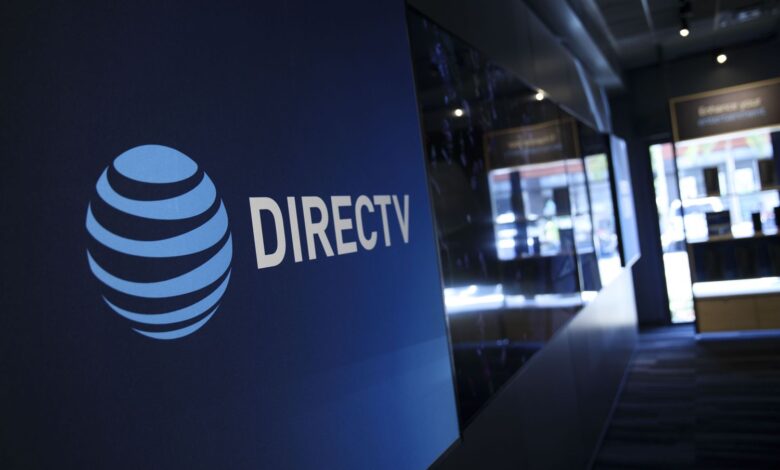Nexstar DirecTV: Navigating the Complex Terrain of Broadcast and Satellite Television

In the rapidly evolving landscape of broadcast and satellite television, the relationship between Nexstar Media Group and DirecTV stands out as a significant chapter. Nexstar, a titan in the local television market, and DirecTV, a leader in direct broadcast satellite service, have engaged in complex negotiations and agreements that have shaped the viewing experience for millions of Americans. This article delves into the intricacies of the Nexstar-DirecTV dynamics, examining the implications of their agreements, disputes, and resolutions on the broader broadcasting and satellite television industry.
Nexstar Media Group: A Brief Overview
Nexstar Media Group, founded in 1996, has grown into one of the largest television broadcasting companies in the United States. The group owns, operates, programs, or provides sales and other services to more television stations than any other company in the country. Nexstar’s rise to prominence is marked by strategic acquisitions and an emphasis on local programming, allowing it to reach a vast array of viewers across diverse geographical regions. The company’s growth trajectory has been remarkable, particularly in its expansion of local news and community-focused content, which has become a cornerstone of its identity and business model.
DirecTV: Satellite Television Pioneer
DirecTV, on the other hand, has been a major player in the satellite television industry since its inception in 1994. Known for providing digital satellite television services to American consumers, DirecTV has a substantial subscriber base, offering a wide range of channels, including those owned and operated by Nexstar. The company has been at the forefront of technological innovations in the satellite TV industry, offering high-definition and ultra-high-definition content, alongside a variety of package options tailored to diverse consumer preferences.
The Nexus of Nexstar and DirecTV: A Relationship Defined by Negotiations
The relationship between Nexstar and DirecTV is primarily defined by retransmission consent negotiations. Retransmission consent is a provision of the 1992 Cable Television Consumer Protection and Competition Act, which requires cable operators and other multichannel video programming distributors, like DirecTV, to obtain permission from broadcasters, like Nexstar, to carry their broadcast signals. These negotiations are crucial as they determine how much DirecTV pays Nexstar for the right to broadcast its channels and, consequently, what channels are available to DirecTV subscribers.
High-Stakes Negotiations and Public Impact
The negotiations between Nexstar and DirecTV have occasionally reached impasses, leading to public disputes and blackouts. Blackouts occur when a new agreement isn’t reached before the existing one expires, resulting in the removal of Nexstar channels from the DirecTV lineup. These blackouts can have significant implications for consumers, especially when popular channels or key sporting events are involved. The public nature of these negotiations often places pressure on both companies to reach an agreement, as consumer dissatisfaction can lead to a loss of subscribers and revenue.
The Financial and Strategic Implications
The financial implications of the negotiations between Nexstar and DirecTV are substantial. For Nexstar, the fees paid by DirecTV for retransmission rights form a significant portion of its revenue. For DirecTV, the cost of these rights is a major factor in its operational expenses and has implications for subscription pricing. The strategic aspect of these negotiations cannot be understated either. For Nexstar, maintaining wide distribution is essential for advertising revenue, while for DirecTV, offering a comprehensive channel lineup is critical to remaining competitive in the market.
Regulatory Environment and Consumer Interests
The regulatory environment surrounding broadcast and satellite TV plays a significant role in the Nexstar-DirecTV relationship. The Federal Communications Commission (FCC) oversees aspects of these negotiations, ensuring they are conducted in good faith. However, the FCC’s role does not extend to resolving disputes or setting the terms of agreements. This regulatory framework aims to balance the interests of broadcasters, distributors, and, importantly, the consumer. Consumer interests are particularly relevant, as these negotiations directly affect what viewers can watch and how much they pay for these services.
The Future of Nexstar and DirecTV: Trends and Predictions
Looking ahead, the relationship between Nexstar and DirecTV is likely to continue evolving. Trends such as the increasing shift towards streaming services and changing consumer viewing habits are set to influence future negotiations and strategies of both companies. Nexstar might focus on strengthening its digital presence, while DirecTV may seek to innovate further in satellite technology and package offerings. The landscape of broadcast and satellite TV is changing, and both Nexstar and DirecTV will need to adapt to maintain their positions in the industry.
Conclusion: A Complex but Essential Partnership
In conclusion, the partnership between Nexstar Media Group and DirecTV is a complex but essential component of the American broadcast and satellite television landscape. Their negotiations, agreements, and occasional disputes play a significant role in shaping the industry’s economics and the viewing experience of millions. As the industry continues to evolve, the relationship between these two giants will remain a crucial factor in determining the future of broadcast and satellite television in the United States.


